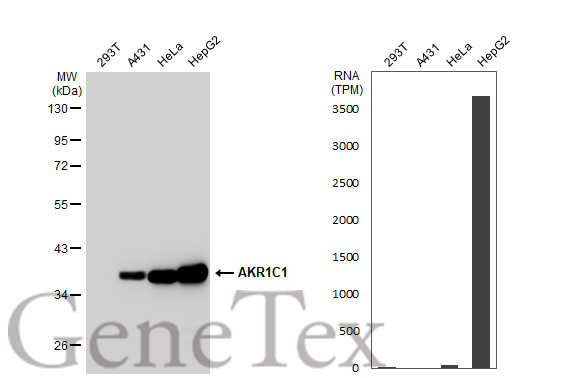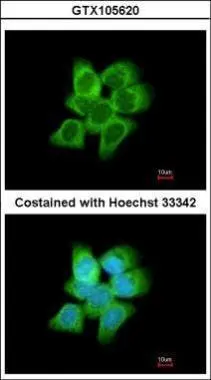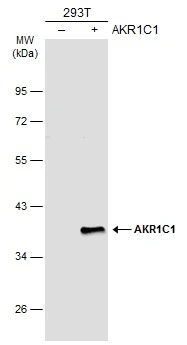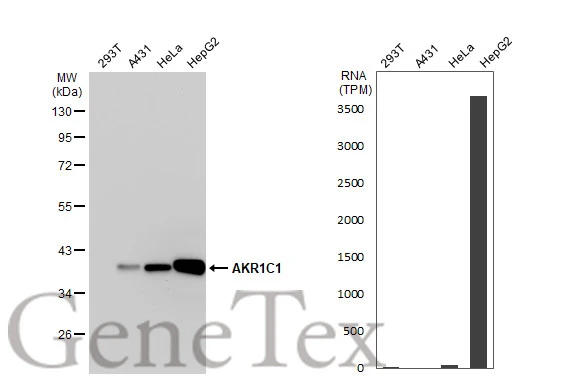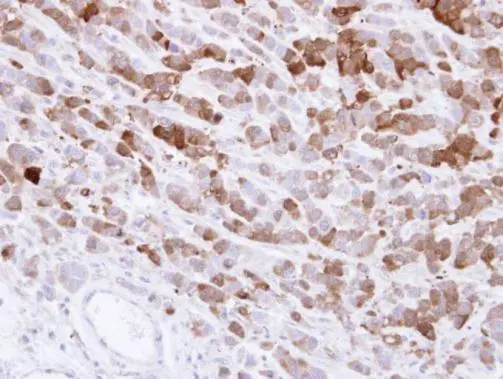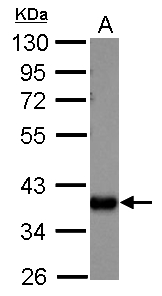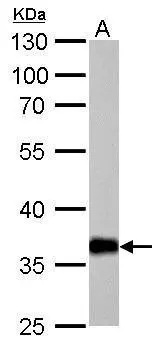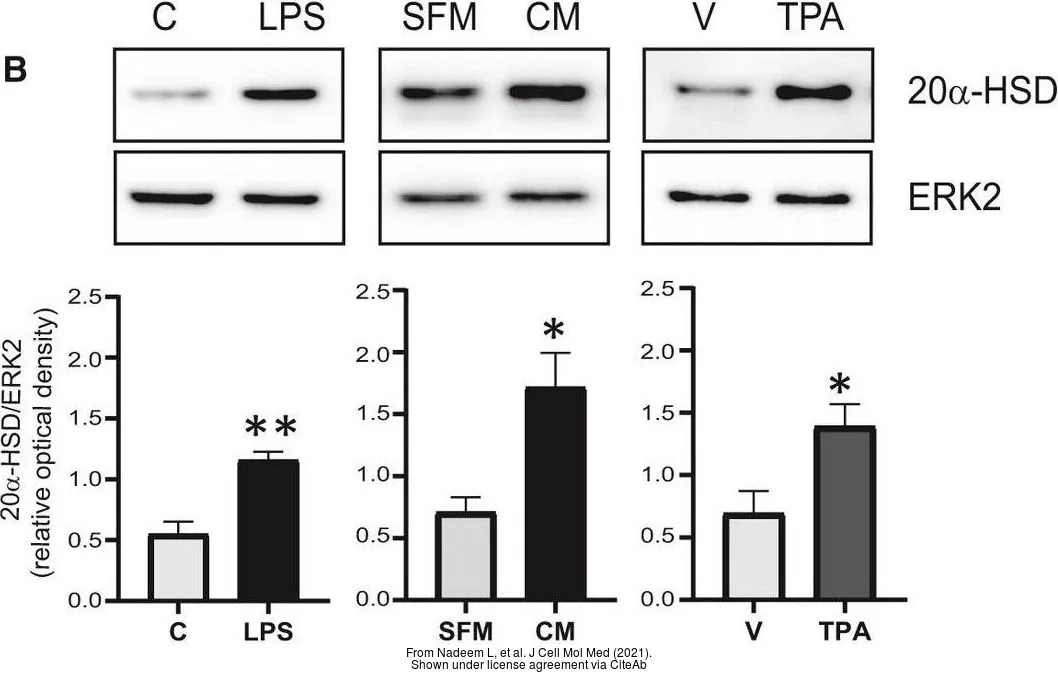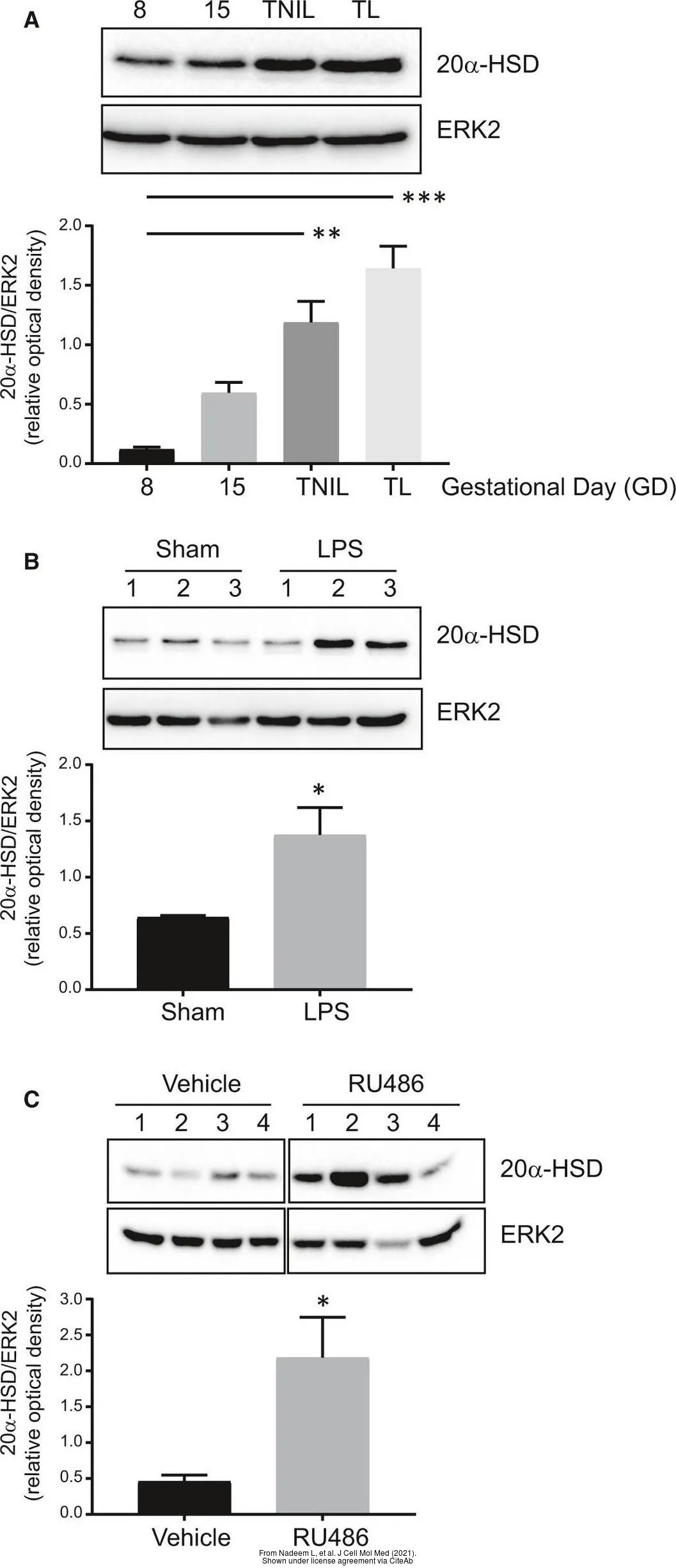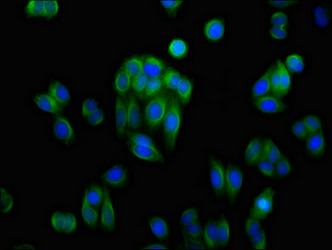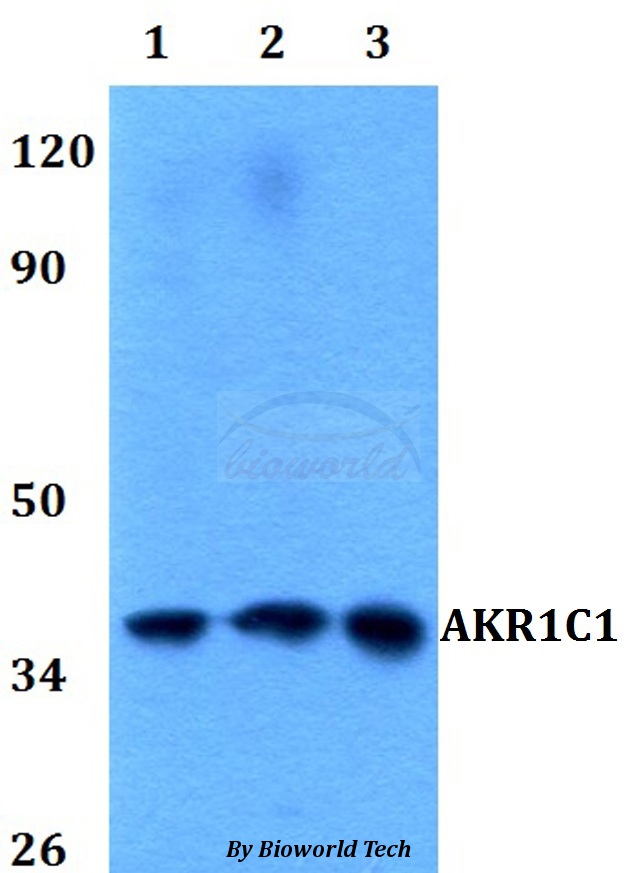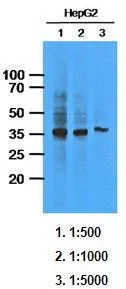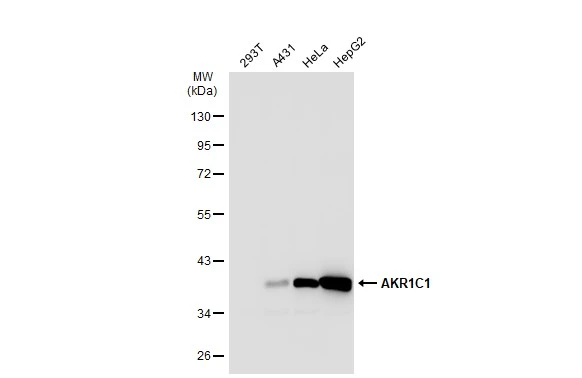
Various whole cell extracts (30 μg) were separated by 10% SDS-PAGE, and the membrane was blotted with AKR1C1 antibody (GTX105620) diluted at 1:1000. The HRP-conjugated anti-rabbit IgG antibody (GTX213110-01) was used to detect the primary antibody.
AKR1C1 antibody
GTX105620
ApplicationsImmunoFluorescence, Western Blot, ImmunoCytoChemistry, ImmunoHistoChemistry, ImmunoHistoChemistry Paraffin
Product group Antibodies
ReactivityHuman, Mouse
TargetAKR1C1
Overview
- SupplierGeneTex
- Product NameAKR1C1 antibody
- Delivery Days Customer9
- Application Supplier NoteWB: 1:500-1:3000. ICC/IF: 1:100-1:1000. IHC-P: 1:100-1:1000. *Optimal dilutions/concentrations should be determined by the researcher.Not tested in other applications.
- ApplicationsImmunoFluorescence, Western Blot, ImmunoCytoChemistry, ImmunoHistoChemistry, ImmunoHistoChemistry Paraffin
- CertificationResearch Use Only
- ClonalityPolyclonal
- Concentration0.6 mg/ml
- ConjugateUnconjugated
- Gene ID1645
- Target nameAKR1C1
- Target descriptionaldo-keto reductase family 1 member C1
- Target synonyms2-ALPHA-HSD, 20-ALPHA-HSD, C9, DD1, DD1/DD2, DDH, DDH1, H-37, HAKRC, HBAB, MBAB, aldo-keto reductase family 1 member C1, 20 alpha-hydroxysteroid dehydrogenase, aldo-keto reductase C, chlordecone reductase homolog HAKRC, dihydrodiol dehydrogenase 1, dihydrodiol dehydrogenase 1/2, dihydrodiol dehydrogenase 1; 20-alpha (3-alpha)-hydroxysteroid dehydrogenase, hepatic dihydrodiol dehydrogenase, high-affinity hepatic bile acid-binding protein, indanol dehydrogenase, trans-1,2-dihydrobenzene-1,2-diol dehydrogenase, type II 3-alpha-hydroxysteroid dehydrogenase
- HostRabbit
- IsotypeIgG
- Protein IDQ04828
- Protein NameAldo-keto reductase family 1 member C1
- Scientific DescriptionThis gene encodes a member of the aldo/keto reductase superfamily, which consists of more than 40 known enzymes and proteins. These enzymes catalyze the conversion of aldehydes and ketones to their corresponding alcohols by utilizing NADH and/or NADPH as cofactors. The enzymes display overlapping but distinct substrate specificity. This enzyme catalyzes the reaction of progesterone to the inactive form 20-alpha-hydroxy-progesterone. This gene shares high sequence identity with three other gene members and is clustered with those three genes at chromosome 10p15-p14. [provided by RefSeq]
- ReactivityHuman, Mouse
- Storage Instruction-20°C or -80°C,2°C to 8°C
- UNSPSC41116161

